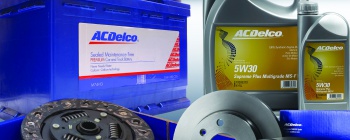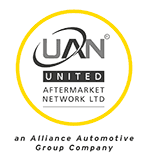
ACDelco’s recent announcement that it has successfully seized some 50,000 counterfeit vehicle parts in Saudi Arabia is a stark reminder of the magnitude of what remains a significant global problem.
It also demonstrates the level of commitment leading players such as ACDelco assign to protecting brand reputation, not to mention the safety of vehicle owners in the process. And whilst this latest haul emanated from what many may term is the other side of the world, the UK and European aftermarket operation is keen to emphasise the ongoing need to remain vigilant closer to home.
As ACDelco’s UK and European director, Lee Quinney states: “The latest haul in Saudi Arabia builds on the success General Motors’ Global Investigations team realised last year across the region, and goes to show how important their role is within GM Global Security. Given that global automotive counterfeiting is estimated at $12bn according to the U.S Federal Trade Commission, it remains imperative for each and everyone of us to play our part in helping dilute the problem; the ultimate aim being to eradicate it. After all, whilst the worst thing that may happen with a fake Rolex watch is for it to stop ticking, when it comes to bogus automotive parts the picture is a totally different one.”
And Quinney goes on to add: “Organisations such as ACDelco are not merely concerned with lost revenue, although the impact on profit should not be underestimated. Bigger issues are at stake, in particular credibility and integrity of their brands and products. What’s more, it does create a ripple effect down the supply chain, with the ultimate cost of counterfeiting affecting us all.”
So whilst the fight against counterfeit goods is in full force, it is important to remember the tell tale signs that can easily be used to help spot the imitation from the real thing. In ACDelco’s eyes these are:
• Significant price differences. Be careful when dealing with suppliers offering prices that are significantly lower than what you usually pay.
• Unconventional supplier. Do business with reputable companies. When dealing with suppliers from whom you don't usually buy, proceed with caution.
• Questionable quality. Closely examine the parts you buy. Look for variations in size, shape and texture from originals you've used before.
• Packaging variations. Make sure the graphics and colours of the box are identical to those you're used to seeing.
• Installation problems. If a part doesn't fit exactly as it should, it could be a fake.
General Motors’ Global Brand Protection Team was established to monitor counterfeiting and other deceptive practices. It coordinates its efforts with OE manufacturers, parts suppliers, Government departments, police and all other relevant authorities.

 Click here to open the navigation menu
Click here to open the navigation menu